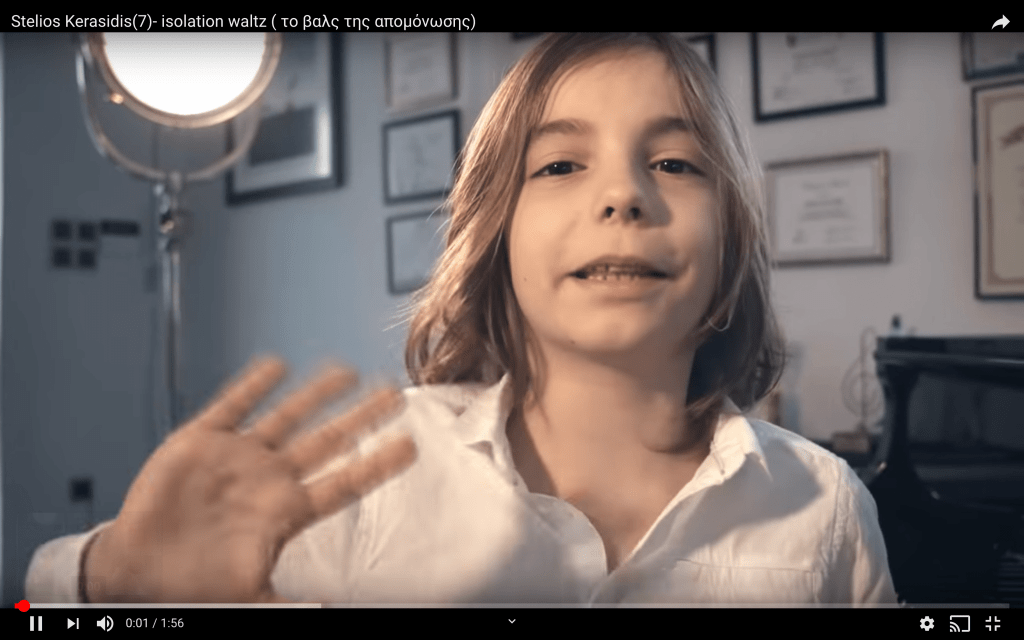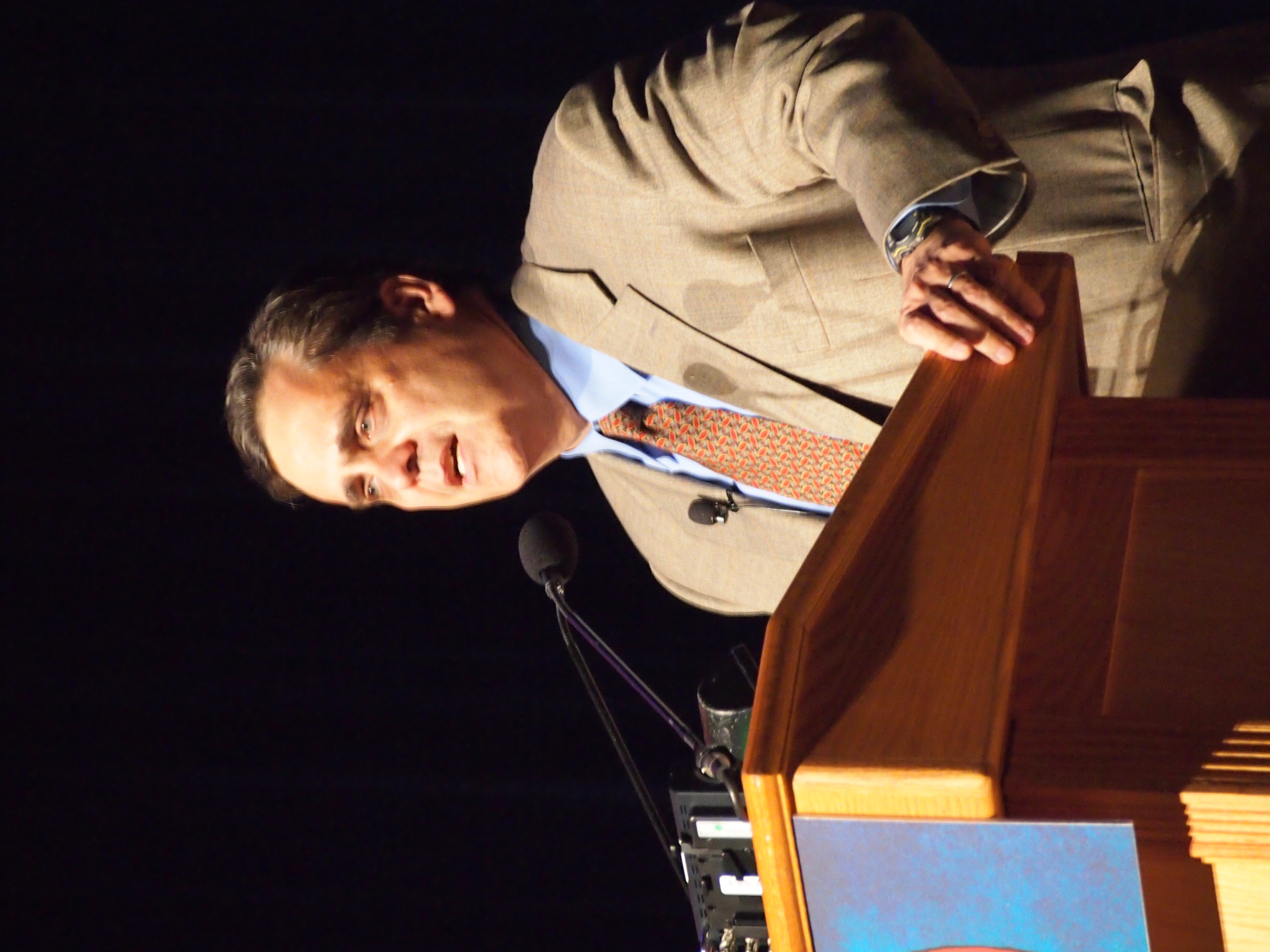The last time I was in the same room with George Washington University law professor Jonathan Turley was in his environmental law class in the mid-1990s. I was in my mid-20s, and Professor Turley was about nine years my senior. Two of my girlfriends and I sat in the front row for every class, which was only remarkable because we were the hardworking, quiet types who preferred to be invisible. There’s a good chance we chose to sit in the front row because we admired this young, charismatic professor with blue eyes and dark hair, who taught us about laws to keep air and water clean. He must have admired us, too, because all three of us ended up with an A+ in his class.
Jonathan Turley Lawyer Twitter
Turley still teaches at GW Law School; he’s the J.B. and Maurice C. Shapiro Professor of Public Interest Law. Yesterday, he testified before the House Judiciary Committee as the lone Republican-chosen impeachment expert. Alongside him were three legal scholars picked by the Democrats: Professors Pamela Karlan of Stanford Law School, Michael Gerhardt of the University of North Carolina Law School, and Noah Feldman of Harvard Law School.
What struck me the most Wednesday, as I watched the hearings with intense interest, was that the 2019 Jonathan Turley no longer matches prior versions of his younger self. To be sure, that can be said for most of us as we age. But Turley’s deterioration, for lack of a better word, comes hand-in-hand with the toll that the Trump Administration takes on anyone who comes near it.
Is microsoft edge good. After graduating from GW Law School, I didn’t encounter Professor Turley again until a few years later when I saw him on TV as a regular commentator excoriating Bill Clinton over the Monica Lewinsky scandal—when he testified before Congress in support of impeachment.
“Crime is contagious,” he said in his 1998 testimony. “If the Government becomes a lawbreaker; it breeds contempt for law; it invites every man to become a law unto himself; it invites anarchy.” To Turley, who claimed to have voted for Clinton, perjury over a blow job was criminal enough to impeach a sitting president. The Washington Post’s Ruth Marcus, at the time, captured the sudden rise to fame of this once obscure environmental law professor pithily, describing him as a liberal Democrat who was “articulate, attractive, and available.”
Jonathan Turley is an American attorney, legal scholar, writer, commentator, and legal analyst in broadcast and print journalism.A professor at George Washington University Law School, he has testified in United States Congressional proceedings about constitutional and statutory issues. Jonathan Turley: Joe and Hunter Biden and 'red flag' gun laws – here comes the next big test for liberal media President Biden is pushing a law to address precisely the danger presented. Turley, who said he does not support the GOP’s challenge of the election results, asked “why on Earth” someone would oppose reviewing why there were so many issues with the 2020 election. “It is the very same law used in the same way as Democrats in past elections,” Turley said of the GOP’s challenge.
In 2010, Turley joined the impeachment club again—this time, in defense of a United States District Court Judge in a Senate impeachment trial. Judge Gabriel Thomas Porteous had been impeached in the House on corruption and perjury charges, including for acts committed before entering office. As defense counsel, Turley went head-to-head against none other than Congressman Adam Schiff, who then served as house manager, or lead prosecutor, in the impeachment trial. Ultimately, Judge Porteous was convicted by the Senate and removed from the federal bench after a unanimous Senate vote. Turley had thrown out some arguments against impeachment on Porteous’s behalf, but they simply didn’t stick.
Then, in August 2014, as Republican contemplated impeaching Barack Obama, Turley put his impeachment expert hat on once again. “While there’s a high bar for what constitutes grounds for impeachment,” he wrote in the Washington Post “an offense does not have to be indictable.” He went on, “Serious misconduct or a violation of public trust is enough,” and noted that “[James] Madison saw impeachment as ‘defending the community against the incapacity, negligence or perfidy of the chief magistrate.”’ Per Turley, the founders also emphasized that impeachment was “about what happened in the political arena: involving ‘political crimes and misdemeanors’ and resulting in ‘political punishments.’”
Fast forward to the Trump Administration—and Turley makes himself relevant again. He is now a regular on Fox & Friends, Trump’s favorite morning show. Sure enough, he’s acted often like a cheerleader for the president. In December of 2018, for instance, he commended then-nominee Attorney General Bill Barr as “an absolutely brilliant choice.” In fact, Turley and Barr have been friends for years, a point he would emphasize a year later when he testified before the Senate Judiciary Committee in favor of Barr’s nomination.
For folks unfamiliar with D.C. lingo, to call someone your “friend” is often another way of saying you’ve arrived at an arrangement in which you back each other up. So, true to form, Turley came out this week and trotted out his failed 2010 arguments against impeachment, but this time, on behalf of Barr’s boss: President Trump. That was the best that Turley—and the Republicans—could offer to stem the rising tide of impeachment.
Prof. Jonathan Turley Twitter
Professor Turley does not necessarily march to the beat of Trump’s drum. During his testimony Wednesday, he said that he did not vote for the president and that he has previously voted for Presidents Bill Clinton and Barack Obama. Indeed in 2015, Turley criticized candidate Trump’s proposed Muslim ban as unconstitutional in the Washington Post: “This would not only violate international law but do so by embracing open discrimination against one religion. It would make the United States a virtual pariah among nations.” (Of course, Turley’s opposition to Trump then is sold by Republicans as a bona fide in his defense of the president now.)

What makes a man crawl back into the saddle for people like Barr and Trump? Why would Turley dust off failed arguments and put himself in the position of being a Trump defender when he claims he doesn’t agree with or support him? Is it his love of the Constitution? Is it his concern about the overreach of Congressional investigations? Marcus’s 1998 Post piece had an answer. Some of his law school colleagues, she reported, “sniff at his celebrity, saying he has forsaken scholarship for self-aggrandizement.” Indeed, according to Marcus, one faculty member quipped at the time: “If there were the deanship for self-promotion, he’d get it.””
Jonathan Turly Twitter
Twenty-five years ago, Turley’s charisma inspired three quiet students to jump at the chance to sit in the front row of his class. But something changed when, 21 years ago, Turley transformed himself as he took the spotlight during the Clinton impeachment hearings. That version of himself seems to have won out. Yesterday, he became the Republican mouthpiece as the lone expert defending Trump from impeachment. Predictably, he was all over cable news Wednesday night, and in all the papers Thursday morning.
Will future students in the front row of his class be young women viewing him through idealistic eyes? Will he inspire them to pursue a career in law to be a champion for justice? I don’t have the answer to that question, but I have a good feeling Stanford Law professor Pamela Karlan’s students certainly will.

